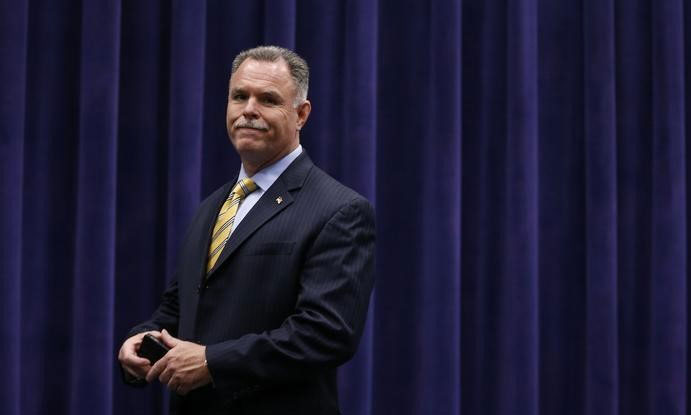
How Activism Encouraged Chicago Police Chief’s Firing
In response to the shooting of an unarmed black teen and the alleged cover-up that critics say followed, the National Bar Association and other civil rights groups last week called for the firing of two key officials involved in the case. Today, only one still has a job.
Chicago Mayor Rahm Emanuel’s decision to fire Police Superintendent Garry McCarthy on Tuesday came during a particularly volatile period for the city of Chicago.
Before this week, McCarthy had weathered a series of storms, such as health problems and repeated calls for his firing—including by city aldermen who claimed that McCarthy had been ineffective at his job.
But in the wake of the scandal involving a Chicago police officer’s fatal shooting of 17-year-old Laquan McDonald in 2014, Emanuel finally took the fateful step.
“I have a lot of loyalty to what (McCarthy has) done and him, but I have a bigger loyalty to the city of Chicago’s future and the strength of that future and no one person trumps my commitment and my responsibility to the city of Chicago and its future,” the mayor said, according to NBC Chicago.
The firing came days after the National Bar Association (NBA) and other groups called for McCarthy’s resignation—which drew national attention to the role McCarthy played in the McDonald case. In a statement last week, NBA President Benjamin Crump called for the firing of both McCarthy and Anita Alvarez, the state’s attorney for Cook County, Illinois.
In particular, Crump—a prominent attorney who has represented the families of Trayvon Martin and Michael Brown in court—took issue with the length of time it took for Alvarez to file charges against Jason Van Dyke, the police officer shown shooting McDonald in a video released widely to media outlets last week.
“It is unacceptable that it took over a year to file these charges against Officer Van Dyke,” Crump wrote in a statement reported by Mashable. “Not only did it take a year to file these charges, but Van Dyke was able to continue in the capacity of a police officer during this delayed investigation.”
On Monday, images captured from the night of the shooting, allegedly showing a police officer directly accessing a security camera from a Burger King near the scene, also created pressure for the two officials to step down.
“Not a Sufficient Punishment”
In an op-ed piece for Time magazine on Monday, Crump said that McCarthy’s failure to strip Van Dyke of his badge was particularly egregious.
“After the shooting, McCarthy did not strip Van Dyke of the privilege of being a law enforcement officer, which could encourage future misconduct by officers,” Crump wrote. “Limited desk duty is not a sufficient punishment for an officer who murdered a teenager who posed no threat. This behavior by the chief law enforcement officer cannot be tolerated, and McCarthy must be terminated.”
The Chicago Urban League (CUL), a local civil rights and public assistance group, was among those to applaud Emanuel’s decision to fire McCarthy.
CUL Interim President and CEO Shari Runner said that McCarthy’s firing “provides more evidence that the African-American community, and those who care about it, must work together to bring significant changes in how justice is administered in our community.”
The CUL had also called for an investigation of the city’s police department, something Illinois’ attorney general asked the Justice department to do on Tuesday.
Beyond the Officers
Alvarez continues in her position as state’s attorney, but controversy around her role in the McDonald case continues, and Crump and other civil rights leaders are keeping up the push for her to be removed from her position.
“The symbiotic relationship between prosecutors and law enforcement and their failure to hold police officers accountable has fueled mistrust between the African American community and law enforcement,” Crump wrote in his Time op-ed.
Chicago police superintendent Garry McCarthy, who was relieved of his duties on Tuesday. (Jim Young/Reuters)






Comments